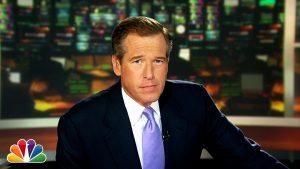The Donald Trump-Russia link is dominating media coverage. Thus far, evidence of a link is nonexistent according to diehard Republicans and forthcoming according to fervent Democrats. Nobody knows for sure if there’s a connection, but speculation is rampant and the media is taking the anti-Trump position and fanning the cold war flames. However, noticeably absent in the media’s nonstop coverage of this potential scandal is one of its favorite terms: Conspiracy theory. Why aren’t they using this term?

If the Russians colluded with Trump to help him win the election and/or discredit Hillary Clinton, it would be, by definition, a conspiracy. As people debate and theorize whether this conspiracy happened or not, they’re theorizing about a conspiracy – in other words they are, like it or not, conspiracy theorists. The term, of course, has a negative connotation (more on that later) suggesting a radical or implausible theory but just at face value there’s no denying that the Russia-Trump connection is at this point a “conspiracy theory.”
However, mainstream media isn’t referring to those who want to investigate this theory as conspiracy theorists. Senator John McCain or FBI Director James Comey weren’t called conspiracy theorists and neither was Hillary Clinton when she theorized during a live television debate that a Russian connection was why Trump refused to release his taxes.
But who does the mainstream media call conspiracy theorists? Their enemies and those who hurt their profits. For instance, anyone anti-vaccine position in mainstream media has the term “conspiracy theory” or “conspiracy theorist” in it. Mainstream media gets millions in advertising revenue from drug companies, so the anti-vaccine position threatens the hand that feeds them. Donald Trump’s theories have been called “conspiracy theory” most often by CNN – and the Trump-CNN feud is well documented. Enemies are conspiracy theorists and those theorizing about things they are agree with are painted as investigators or champions of truth.
The term “conspiracy theory” is a poison pill, with side effects worse than any pharmaceutical advertised on your television. It transforms a critical thinker into a drooling tinfoil hat wearing whack job in six syllables. Mainstream media knows this. Writers know this. Editors know this. Calling your teammate a “conspiracy theorist” would be akin to putting a “kick me” sign on their back. But dub your enemy a conspiracy theorist, and let the internet trolls go to work destroying credibility faster than Brian Williams’ hooked up to a lie detector test.
It’s been suggested by conspiracy theorists that the term “conspiracy theory” was coined in the 1960s to discredit JFK assassination conspiracy theories. This isn’t quite the case. The term conspiracy theory existed in a legal context several decades before Kennedy was killed and Google Ngram shows that the term was gaining popularity in the 1940s. However, a careful look into the context of the use of the term shows that the uses prior to the 1960s were mostly benign. “Conspiracy Theorist” wasn’t an insult or a negative thing at the turn of the 20th century. By the late 1960s, however, it became a negative term used to smear critical thinkers and those whose beliefs didn’t fit the government’s paradigm. Operation Mockingbird, the CIA program designed to manipulate the media and control consumer’s perspective, weaponized a word to destroy credibility.
Today, if you ever have doubts about whose side the media is on, just look at who they’re aiming that weaponized term at and who they go out of their way to avoid using it on.



